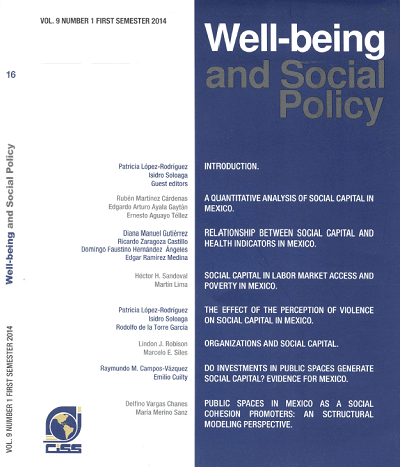
Increasing levels of violence in Mexico, which have the potential to damage the very fabric of 1 society, as well as impact key economic variables, led us to analyze the effect that changes in the perception of violence had on social capital fluctuations (including associative capital) between 2006 and 2011. This was a period in which an anti-violence and anti-organized crime policy was launched in Mexico (2006-2012). A panel model was constructed and estimated using leastsquares instrumental variables in two stages. This was due to the endogeneity problem inherent to using 2006 ENCASU and 2011 ENCAS data. Results showed that changes in the perception of violence are not related to information-source type. They do, however, correlate to changes in municipal homicide rates. The study also found that the perception of violence negatively affects the level of social association in Mexico. In the north of the country people perceive more violence. The policy recommendations are aimed at reducing the influence of violence or crime rates in municipalities if the objective is to strengthen the social fabric of Mexico.
